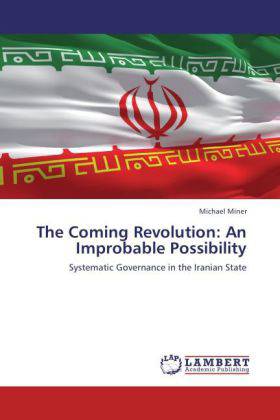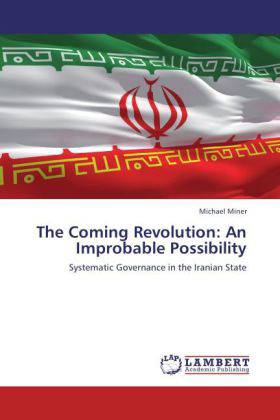
Bedankt voor het vertrouwen het afgelopen jaar! Om jou te bedanken bieden we GRATIS verzending (in België) aan op alles gedurende de hele maand januari.
- Afhalen na 1 uur in een winkel met voorraad
- In januari gratis thuislevering in België
- Ruim aanbod met 7 miljoen producten
Bedankt voor het vertrouwen het afgelopen jaar! Om jou te bedanken bieden we GRATIS verzending (in België) aan op alles gedurende de hele maand januari.
- Afhalen na 1 uur in een winkel met voorraad
- In januari gratis thuislevering in België
- Ruim aanbod met 7 miljoen producten
Zoeken
The Coming Revolution: An Improbable Possibility
Systematic Governance in the Iranian State
Michael Miner
Paperback | Engels
€ 97,45
+ 194 punten
Omschrijving
Following the 2009 Presidential Election, secular democratic stability in the Islamic Republic of Iran appeared the most improbable of possibilities. Yet it marked a critical point in history that will forever be remembered as the beginning of the end for theocratic tyranny in the state. Paradigm shifting demographics and increasingly authoritarian leadership are aggravating a revolutionary construct. If political and socio-economic challenges remain unaddressed, conditions will trigger a confluence of events unifying opposition against the ruling clerical establishment. This research first examines select mechanisms of the Iranian political system as it stood prior to the 2009 Presidential Election; chiefly the most influential and powerful apparatuses of the state. Second, if and how consequential effects of the election have altered political activity of a society within the midst of a revolutionary construct. Finally it will conclude identifying systemic trends that may result in unanticipated structural reformation of constitutional political power: a shift that will change the nature of the Iranian political system and redefine a delicate balance of power in the Persian Gulf.
Specificaties
Betrokkenen
- Auteur(s):
- Uitgeverij:
Inhoud
- Aantal bladzijden:
- 196
- Taal:
- Engels
Eigenschappen
- Productcode (EAN):
- 9783845401522
- Verschijningsdatum:
- 30/06/2011
- Uitvoering:
- Paperback
- Afmetingen:
- 150 mm x 220 mm
- Gewicht:
- 310 g

Alleen bij Standaard Boekhandel
+ 194 punten op je klantenkaart van Standaard Boekhandel
Beoordelingen
We publiceren alleen reviews die voldoen aan de voorwaarden voor reviews. Bekijk onze voorwaarden voor reviews.









